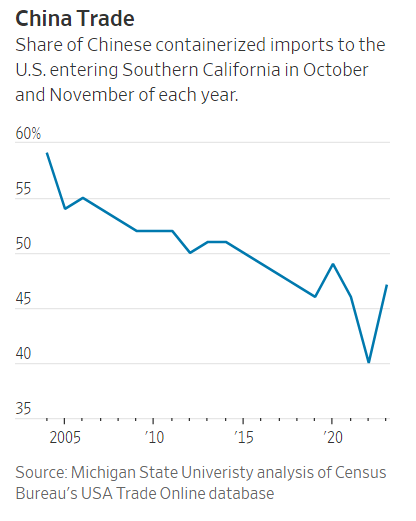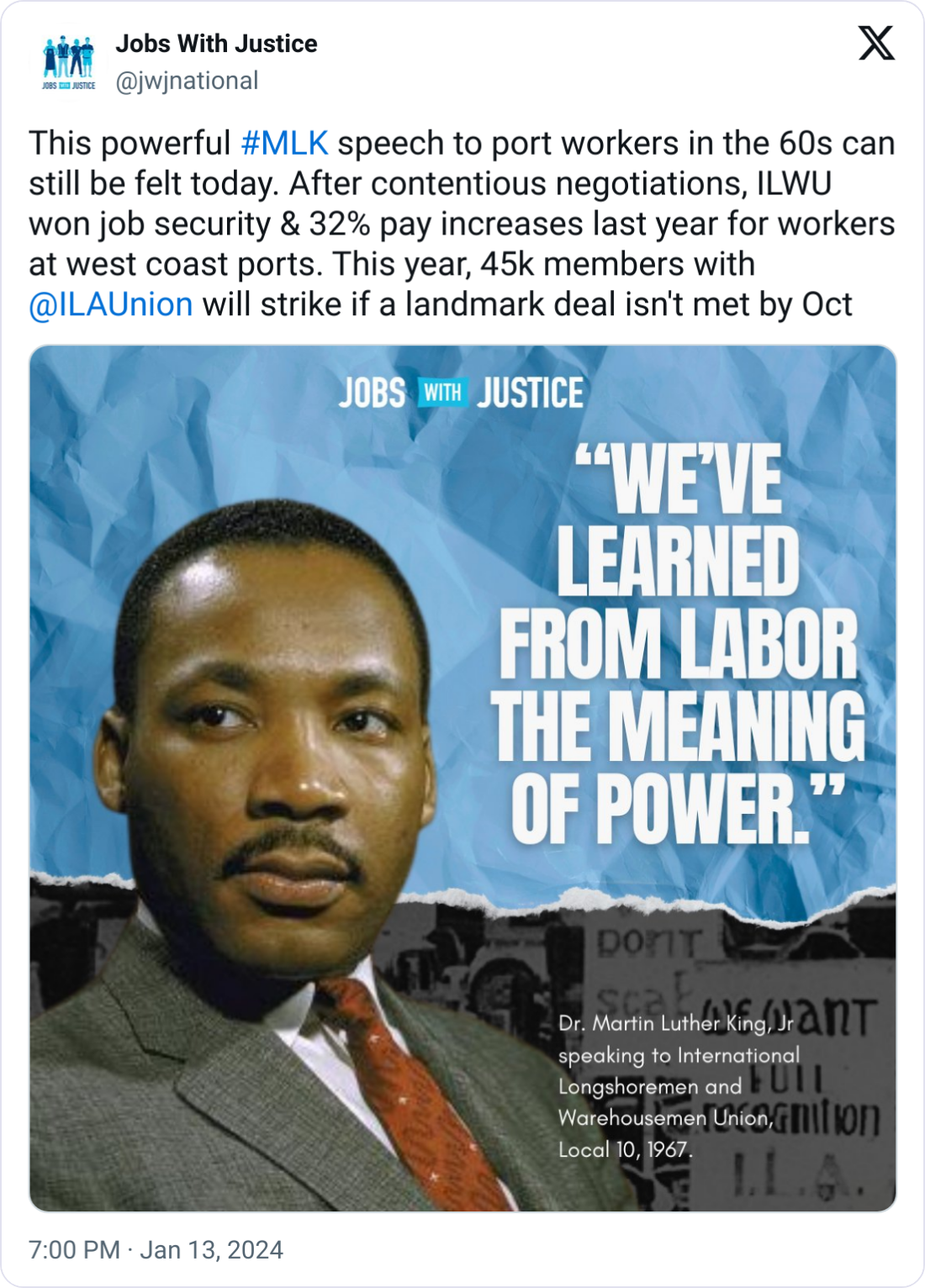🎣 Warrants Served
Plus, a Chicago-based freight broker boasts about making $215k in one day, Lineage Logistics hits it big with an $18 billion IPO, the latest on the Ocean's 11-style freight heist, and more.
"Southern California ports are winning back U.S. containerized imports, benefiting from labor peace and canal disruptions.

The ports of Los Angeles and Long Beach are experiencing a resurgence in their role as key U.S. trade hubs. After losing ground to Gulf Coast and East Coast ports during the pandemic, these Southern California ports are now witnessing a significant rebound in containerized imports.
Key Developments:

Driving Factors Behind the Shift
Logistics Executive Insights
Jamie Bragg, Chief Supply-Chain Officer at Tailored Brands, noted the efficiency and cost-effectiveness of California ports due to their proximity to Asia and robust truck and rail connections. Tailored Brands, which shifted its imports from California to Houston during the pandemic, has now returned to Southern California.
West Coast's Evolving Role
Historically dominant in U.S. import supply chains, the West Coast's market share had declined over the years. However, with recent changes, the ports of Los Angeles and Long Beach are aggressively working to increase their market share.
Future Challenges for East Coast and Gulf Coast Ports
East Coast and Gulf Coast ports now face potential labor disruptions, with contract talks looming. The leadership of the dockworkers' union has even threatened strikes, adding to the uncertainty for shippers using these ports.

Source: WSJ
Join over 10K+ subscribers to get the latest freight news and entertainment directly in your inbox for free. Subscribe now & be sure to check your inbox to confirm (and your spam folder just in case).